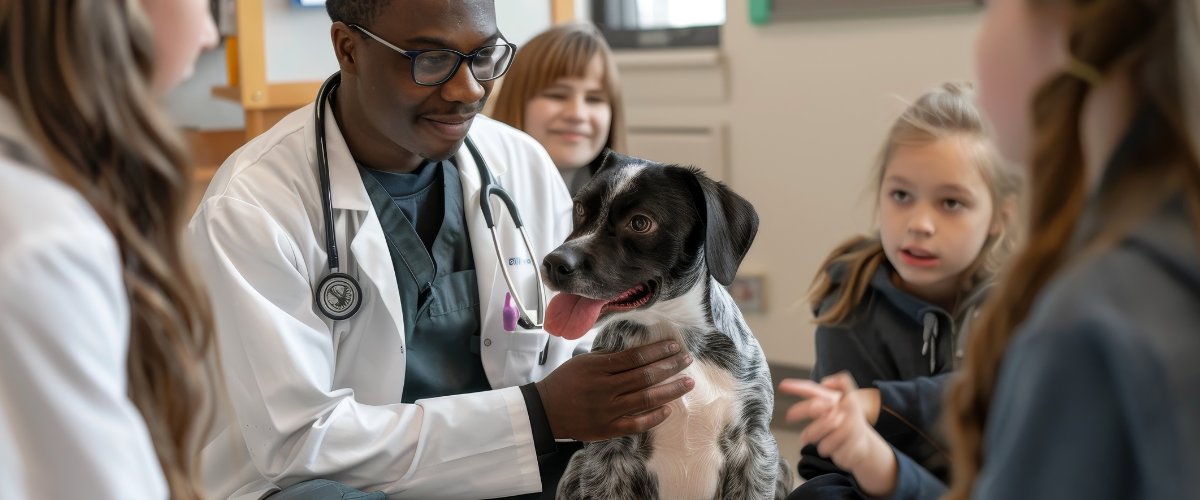A question often arises, “How does experiential learning benefit students?” As a teacher, you’re in a unique position to shape your students’ future paths. For those driven students looking to stand out on college applications, experiential learning offers transformative benefits. It's not just a buzzword—experiential learning is a powerful tool that equips students with real-world skills, enriches their academic experiences, and makes their applications shine. Here’s why recommending programs like Envision’s experiential learning opportunities could be one of the best decisions you make for your students.
What Is Experiential Learning?
Experiential learning is an education model where students "learn by doing." This approach goes beyond textbooks and lectures, immersing students in hands-on activities, collaborative projects, and problem-solving scenarios that mirror real-world challenges. Whether it’s a leadership conference, a STEM workshop, or a career-focused simulation, these experiences deepen understanding, foster critical thinking, and ignite a passion for lifelong learning.
Answering the Question: How Does Experiential Learning Benefit Students?
One important way to gain an advantage when applying to college is by earning an advantage. Admissions officers review thousands of applications each year, and standing out is critical. Experiential learning gives students a competitive edge in several ways.
Why Experiential Learning Matters for College Applications
- Practical Experience That Speaks Volumes - Activities like internships, fieldwork, or Envision’s career-based programs demonstrate that students have gone beyond academics to explore their interests. Colleges love to see applicants who have taken proactive steps to engage with the world around them.
- Leadership and Initiative - Experiential learning often places students in leadership roles, whether managing a group project or solving real-world challenges. These experiences are gold when writing essays or filling out applications. Highlighting leadership and initiative shows maturity and readiness for the independence college life demands.
- Stronger Letters of Recommendation - Teachers, counselors, and mentors involved in experiential learning programs often have detailed insights into a student’s abilities and potential. These insights make recommendation letters more impactful, painting a vivid picture of the applicant's strengths.
- Memorable Application Essays - Colleges value authenticity in personal statements. Students who’ve participated in experiential learning can write essays that are unique, heartfelt, and full of specific examples, helping them stand out in a sea of generic applications.
- Exposure to Career Pathways - Programs like Envision provide opportunities for students to explore potential career paths early. This exposure not only helps clarify future goals but also signals to colleges that the student is focused and driven.
The Tangible Benefits of Experiential Learning
Savvy teachers explore the question, “How does experiential learning benefit students?” Through this exploration, they’re unlocking doors for their students to:
- Develop Real-World Skills—Communication, teamwork, and problem-solving are just a few of the skills students gain. These are the same competencies colleges and employers look for.
- Build Confidence - Students leave these programs with a stronger sense of self and the confidence to tackle challenges—qualities that resonate strongly in interviews and personal interactions.
- Create a Standout Portfolio - From research projects to community impact initiatives, experiential learning often results in tangible outputs that can be showcased in applications or portfolios.

How Teachers Can Help Students Access These Opportunities
Teachers play a pivotal role in connecting students to the question: “How does experiential learning benefit students?” Here’s how teachers can help:
- Identify Students Who Could Benefit - Look for students with curiosity, drive, or untapped potential. These programs are especially valuable for students who need guidance in exploring their interests.
- Introduce Programs Early - The earlier students engage in experiential learning, the more time they have to build on those experiences throughout high school.
- Support Applications—Help students navigate the application process for programs like Envision. Your encouragement can make a world of difference in whether they pursue these opportunities.
Why Envision?
Envision offers tailored experiential learning programs designed to help students explore their passions, build critical skills, and develop as leaders. From STEM to leadership to business, these programs align with students’ goals while setting them apart in the competitive college admissions landscape.
So, how does experiential learning benefit students? The answer is clear: it provides them with the tools, skills, and confidence to succeed—not just in school but in life. As a teacher, your recommendation can inspire a student to step into their future with purpose. By connecting them to experiential learning opportunities, you’re not just shaping their college applications—you’re shaping their potential.
Envision by WorldStrides is passionate about guiding students each step of the way as they rise to their highest potential through transformative experiences. Our programs offer hands-on experiences that allow high schoolers to test the waters of possible career tracks in:
background-image: a building with the American flag in front of it